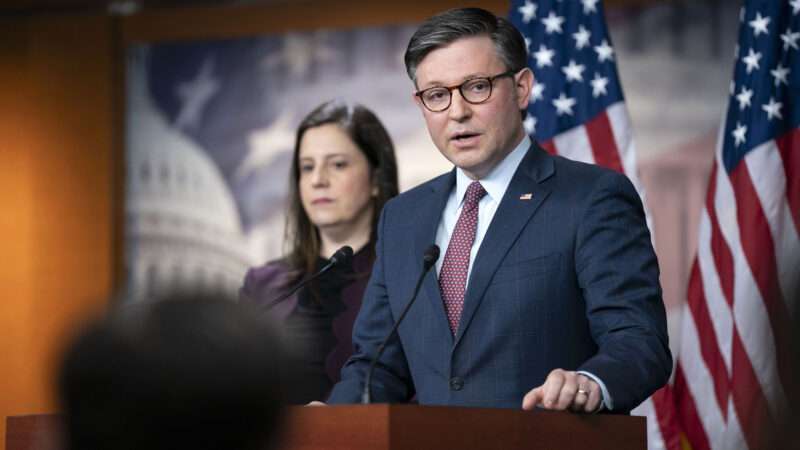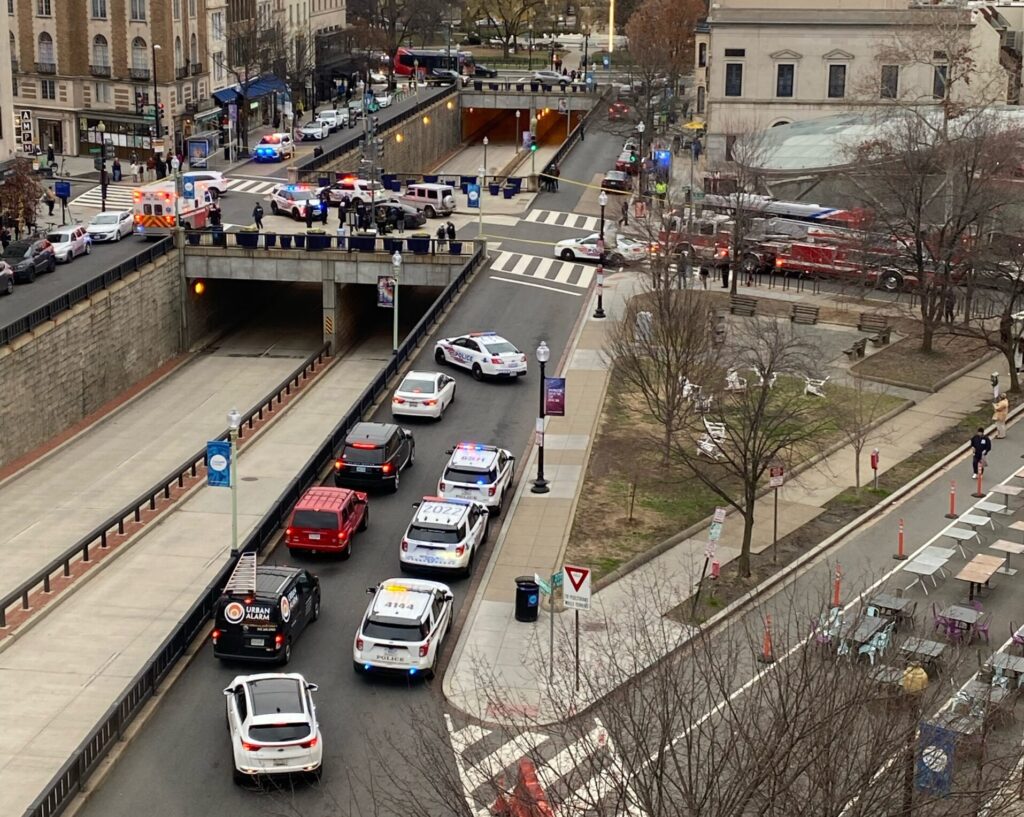
On Wednesday afternoon, the closely divided House of Representatives passed a much-heralded bipartisan $78 billion tax deal by a wide 357–70 margin.
The tax bill revives and/or expands tax credits for small businesses, families with children, and affordable housing producers.
"The Tax Relief for American Families and Workers Act is pro-growth, pro-jobs, pro-America," said Rep. Jason Smith (R–Mo.) and Sen. Ron Wyden (D–Ore.), the primary architects of the legislation, in a joint statement reported by Politico. "It's a strong commonsense bipartisan step forward in providing tax relief for working families and small businesses."
The most eye-catching part of the bill is its expansion of the Child Tax Credit. The House bill also expands the "refundable" portion of the credit that very low-income families receive, meaning they'll receive tax credits that exceed the value of their tax liability.
Republicans and Democrats have both supported child tax credits as a simple and direct means of cutting child poverty.
On the other hand, American Enterprise Institute scholars Scott Winship and Kevin Corinth have argued that the design of the tax credit will create work disincentives for low-income families, encouraging them to take part-time over full-time employment or even drop out of the labor force entirely.
"What is a refundable tax credit? It's welfare by a different name. We're going to give cash payments, checks, to people who don't even pay taxes," said Rep. Thomas Massie, (R–Ky.), per PBS. The Wall Street Journal editorial board called the child tax credit provisions a "trojan horse."
On the flip side, some Progressive Democrats voted no on the bill because it didn't expand the child tax credit enough.
The legislation allows businesses to immediately and fully deduct their development and research spending, interest costs, and capital depreciation from their tax bills. That's earned it support from free market, low-tax groups like Americans for Tax Reform.
The bill also sunsets a pandemic-era employee retention tax credit that's proven massively more expensive than expected and has been riddled with fraud.
Everyone is going to find something to like and dislike about the House bill. Perhaps the most important takeaway is that it continues America's long tradition of doing literally all policy through the tax credits.
The bill now goes to the Senate, where it's expected to have a tougher time passing.
California lawmakers are getting increasingly serious about reparations. On Wednesday, the California Legislative Black Caucus released 14 bills intended to right the wrongs of past racist policies.
The bills are wide-ranging. One would require advanced notice to be provided when grocery stores close in underserved communities. Another would restrict the use of solitary confinement. There's also a bill that would provide state funding to "specific groups," which Politico described as potentially unconstitutional.
Interestingly for property rights advocates, the bill would look to reverse past instances of "race-based" eminent domain. That bill would "restore property taken during raced-based uses of eminent domain to its original owners or provide another effective remedy where appropriate, such as restitution or compensation," said California Sen. Steven Bradford (D–Inglewood), reported Cal Matters.
Notably missing from the package is any sort of cash payments to the descendants of slaves.
The Biden administration's slow-burning war on gas stoves continues. Earlier this week, the U.S. Department of Energy released a final rule creating new, tougher energy efficiency standards for home appliances that affect both gas and electric stoves.
Earlier versions of this rule could have forced many gas stoves off the market entirely, complementing local and state efforts to ban gas appliances in new development. The administration's final rule is more modest. The Washington Post reports it will affect 3 percent of gas stoves on the market.
The Energy Department's final rule "is less stringent than the initial proposal that would have forced most gas models off the market, there really shouldn't be any such federal regulatory meddling in the decisions of consumers," said Ben Lieberman of the Competitive Enterprise Institute. He cautioned that the Biden administration is still working on tougher regulatory standards for more home appliances like dishwashers, washing machines, ceiling fans, furnaces, and water heaters.
Scenes From D.C.
The normally tranquil mood of the Reason D.C. office was interrupted earlier this week by a shooting just down the block near Dupont Circle. Our crime photographer/managing editor Jason Russell captured the subsequent police activity.

One man, possibly in a vehicle, was shot by another man who drove off, in what sounds like a possible road rage incident. The victim was taken to the hospital with a non-fatal shoulder wound.
Like most cities, D.C. saw a big increase in violent crime during the pandemic. Unlike most cities, our violent crime rate is staying persistently high.
D.C. residents vented their frustrations at city officials yesterday at a community meeting, where the D.C. Attorney General said, failing to read the room, that the city couldn't prosecute its way out of the crime wave.
During a panel, DC residents voiced their frustrations and demanded accountability from city leaders in addressing the violent crime epidemic that's plaguing our nation's capital.
DC Attorney General Brian Schwalb's response: "We cannot prosecute and arrest our way out of it." pic.twitter.com/hEUT8GG7Al
— Carrie Severino (@JCNSeverino) January 31, 2024
D.C.'s weird status as a federal district means that city officials have little control over criminal prosecutions, which are instead largely handled by the U.S. Attorney for D.C. Matthew Graves. Graves gets a lot of blame for declining to prosecute enough crimes.
All the anger being directed towards AG Schwalb for saying this needs to be directed to US Attorney Graves, the person who can actually prosecute the majority of cases in DC and chooses not to! https://t.co/kc6JuqYroh
— Billy Easley II (@billyez2) February 1, 2024
Quick Links
- Democrats are putting pressure on Federal Reserve Chair Jerome Powell to bring down interest rates.
- E.U. leaders agree to a $54 billion aid package for Ukraine.
- Israel continues its controlled demolitions of neighborhoods in Gaza.
- For just $8.5 million, you can buy the late Dianne Feinstein's home in D.C.
- A new report finds that government overreach led to "chaos" during the pandemic. Who knew?
- Taylor Swift: Pentagon psyop, or protector of the people?
https://t.co/XxJGKSze1l pic.twitter.com/zq5fEd9GmJ
— Warren Rhea ???? (@EverydayWarren) February 1, 2024
- Police who killed an armed homeowner in a wrong door raid won't face criminal charges.
No criminal charges will be filed against three New Mexico police officers who went to the wrong address while responding to a domestic violence call last year and fatally shot the armed homeowner who came to the door, state officials said. https://t.co/gMvyWybmAi
— The New York Times (@nytimes) January 31, 2024
The post Bipartisan Tax Credit Bonanza appeared first on Reason.com.







